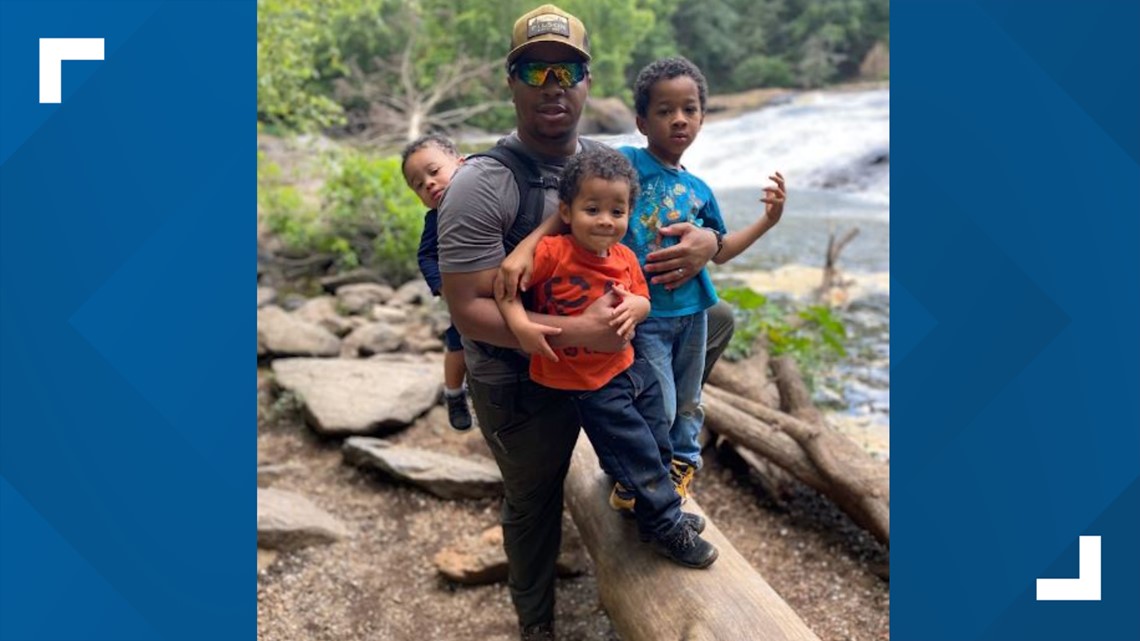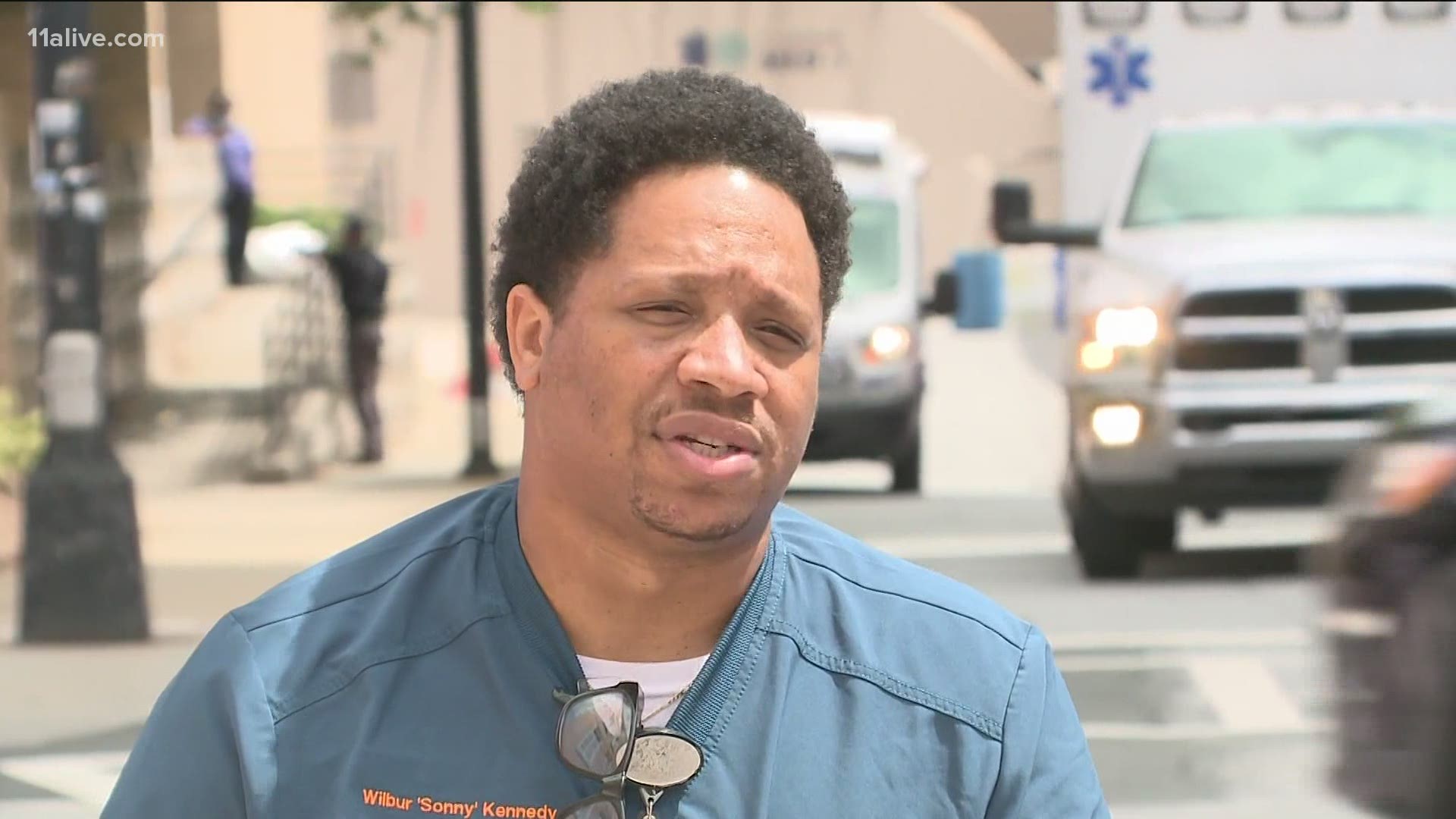ATLANTA — Front line workers like Wilbur Kennedy, a respiratory therapist at Grady Healthcare, are exhausted. He’s tired. Not only by the work, but also by the sacrifices his family is making.
“I envision a time when my son and I will talk about this and what we experienced,” Kennedy said as he sat down to open up about the past six months working to fight COVID-19.
Kennedy works in the emergency department. When the virus erupted, his family decided they wanted to stick together, even if it meant staying apart from others.
“My boys can't go and see their grandmother, and also my neighbor. We had to sever that relationship,” he explained.
“I used to take my scrubs off at home, in the garage. Now, there's the change of clothes and this whole scrubbing out, all the way to the shoes," he added before asking, "The question is always, am I taking this to my family?"


During the pandemic, the CDC tested daily more than 3,000 nurses, doctors and respiratory therapists. It found six percent - or 194 of them - had antibodies. Men and those with gaps in access to PPE, especially N95 masks, were more likely impacted.
Kennedy said at Grady, he has what he needs, but PPE is treated differently. No longer do doctors, nurses and other staff throw them away after one use.
“Now, all of the sudden, it's like a really valuable resource that we got to hang on to. So, this is a challenge, a real challenge," Kennedy said.
The respiratory therapist watched as elderly family members survived the virus without ever stepping foot inside a hospital. But he’s also treated young patients in great shape that didn’t survive. He said there was one patient in particular that sticks with him. The man was young and good looking. He was healthy - in great shape - and had a welcoming attitude. Still, the virus was more than his body could beat.
“I remember reassuring him just before intubation, telling him, 'hey, you're in the best place. You're OK.' And I'm telling you, it couldn't have been an hour later, we were coding and he was out,” Kennedy said before taking a deep breath. “And I had to go for a walk that day. That was hard.”
In Georgia, about 23 percent of those who go to the hospital with the virus have died.
“I really love what I do,” Kennedy said, "but I had a day here recently where I think we were on about fifth or six intubating - intubated patient [in the emergency department], and I leaned over on a ventilator. I'm just like, if I get one more of these man, I don't know that I can keep on going.”
That’s why Kennedy said what he needs for people to know is that this virus is a real threat. But it’s one we can overcome.
“We have to treat this thing differently. We can't continue to do the same things and hope that it goes away," Kennedy said.
He said he doesn’t know what will happen with the flu season or when a vaccine will be ready. But he hopes when his boys are older and reflect on their sacrifices in 2020, they’ll still look at their father with pride.
“So it just keeps you going, keeps you full of that fire and wanting to keep them impressed," Kennedy said.

